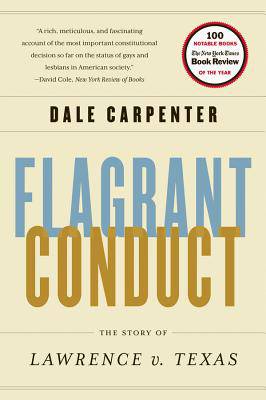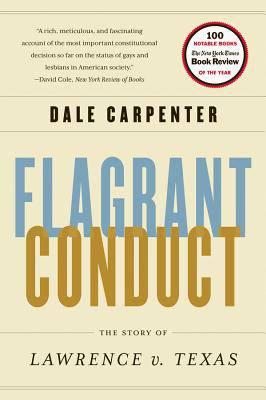
En raison d'une grêve chez bpost, votre commande pourrait être retardée. Vous avez besoin d’un livre rapidement ? Nos magasins vous accueillent à bras ouverts !
- Retrait gratuit dans votre magasin Club
- 7.000.000 titres dans notre catalogue
- Payer en toute sécurité
- Toujours un magasin près de chez vous
En raison de la grêve chez bpost, votre commande pourrait être retardée. Vous avez besoin d’un livre rapidement ? Nos magasins vous accueillent à bras ouverts !
- Retrait gratuit dans votre magasin Club
- 7.000.0000 titres dans notre catalogue
- Payer en toute sécurité
- Toujours un magasin près de chez vous
15,45 €
+ 30 points
Description
No one could have predicted that the night of September 17, 1998, would be anything but routine in Houston, Texas. Even the call to police that a black man was "going crazy with a gun" was hardly unusual in this urban setting. Nobody could have imagined that the arrest of two men for a minor criminal offense would reverberate in American constitutional law, exposing a deep malignity in our judicial system and challenging the traditional conception of what makes a family. Indeed, when Harris County sheriff's deputies entered the second-floor apartment, there was no gun. Instead, they reported that they had walked in on John Lawrence and Tyron Garner having sex in Lawrence's bedroom.
So begins Dale Carpenter's "gripping and brilliantly researched" Flagrant Conduct, a work nine years in the making that transforms our understanding of what we thought we knew about Lawrence v. Texas, the landmark Supreme Court decision of 2003 that invalidated America's sodomy laws. Drawing on dozens of interviews, Carpenter has taken on the "gargantuan" task of extracting the truth about the case, analyzing the claims of virtually every person involved.
Carpenter first introduces us to the interracial defendants themselves, who were hardly prepared "for the strike of lightning" that would upend their lives, and then to the Harris County arresting officers, including a sheriff's deputy who claimed he had "looked eye to eye" in the faces of the men as they allegedly fornicated. Carpenter skillfully navigates Houston's complex gay world of the late 1990s, where a group of activists and court officers, some of them closeted themselves, refused to bury what initially seemed to be a minor arrest.
The author charts not only the careful legal strategy that Lambda Legal attorneys adopted to make the case compatible to a conservative Supreme Court but also the miscalculations of the Houston prosecutors who assumed that the nation's extant sodomy laws would be upheld. Masterfully reenacting the arguments that riveted spectators and Justices alike in 2003, Flagrant Conduct then reaches a point where legal history becomes literature, animating a Supreme Court decision as few writers have done.
In situating Lawrence v. Texas within the larger framework of America's four-century persecution of gay men and lesbians, Flagrant Conduct compellingly demonstrates that gay history is an integral part of our national civil rights story.
So begins Dale Carpenter's "gripping and brilliantly researched" Flagrant Conduct, a work nine years in the making that transforms our understanding of what we thought we knew about Lawrence v. Texas, the landmark Supreme Court decision of 2003 that invalidated America's sodomy laws. Drawing on dozens of interviews, Carpenter has taken on the "gargantuan" task of extracting the truth about the case, analyzing the claims of virtually every person involved.
Carpenter first introduces us to the interracial defendants themselves, who were hardly prepared "for the strike of lightning" that would upend their lives, and then to the Harris County arresting officers, including a sheriff's deputy who claimed he had "looked eye to eye" in the faces of the men as they allegedly fornicated. Carpenter skillfully navigates Houston's complex gay world of the late 1990s, where a group of activists and court officers, some of them closeted themselves, refused to bury what initially seemed to be a minor arrest.
The author charts not only the careful legal strategy that Lambda Legal attorneys adopted to make the case compatible to a conservative Supreme Court but also the miscalculations of the Houston prosecutors who assumed that the nation's extant sodomy laws would be upheld. Masterfully reenacting the arguments that riveted spectators and Justices alike in 2003, Flagrant Conduct then reaches a point where legal history becomes literature, animating a Supreme Court decision as few writers have done.
In situating Lawrence v. Texas within the larger framework of America's four-century persecution of gay men and lesbians, Flagrant Conduct compellingly demonstrates that gay history is an integral part of our national civil rights story.
Spécifications
Parties prenantes
- Auteur(s) :
- Editeur:
Contenu
- Nombre de pages :
- 384
- Langue:
- Anglais
Caractéristiques
- EAN:
- 9780393345124
- Date de parution :
- 17-06-13
- Format:
- Livre broché
- Format numérique:
- Trade paperback (VS)
- Dimensions :
- 139 mm x 210 mm
- Poids :
- 312 g

Les avis
Nous publions uniquement les avis qui respectent les conditions requises. Consultez nos conditions pour les avis.






